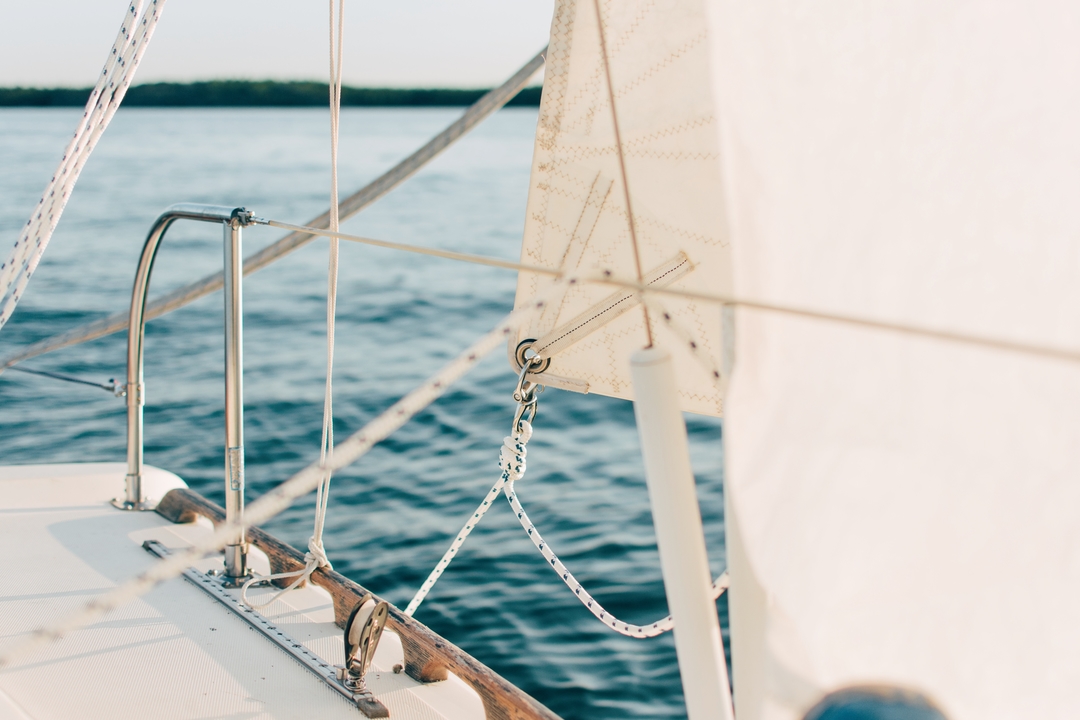Why sailing holidays are on the rise
Sailing holidays have become increasingly popular in recent years with the global yacht charter market now thought to be worth over $10.91 billion US dollars. It has been estimated that the annual growth rate (CAGR) will be around 25.6% between now and the year 2028.
Author:Iram MartinsReviewer:Karan EmeryFeb 02, 202215.3K Shares394.5K Views

Sailing holidays have become increasingly popular in recent years with the global yacht charter marketnow thought to be worth over $10.91 billion US dollars. It has been estimated that the annual growth rate (CAGR) will be around 25.6% between now and the year 2028.
So, why exactly are more tourists choosing this type of activity for their summer vacations?
Accessibility To Yachts Has Increased
While yachting holidays were once reserved for the rich and famous, yacht and catamaran charters are now much easier to find. Using sites like Borrow a Boat, travellers can now easily find reasonably priced charters in destinations all around the world.
They do not even need to know how to sail and maintain a vessel. Sailing holidays with skippers or even a full crew can easily be booked online. Top destinations for charters include the Greek islands, Italy, Turkey, Croatia, Thailand and the British Virgin Islands.
Seeking Adventure And Staying On The Move
Another reason why sailing holidays are on the rise is that tourists are looking for new experiences. When staying in a hotel, guests often spend their time in or around the hotel resort, often feeling tied to it if they have paid for all inclusive food or drink.
While it is possible to travel places on a traditional hotel break, it often requires advanced planning with car hire or coach transport needing to be booked. Alternatively, public transport can be used but this can be difficult to navigate in an unfamiliar language and location. Activities often come in the form of pre-booked group tours.
Conversely, on a sailing holiday your vessel acts as both your accommodation and your main mode of transport, it is particularly convenient when you want to travel between islands.
You can sail over to different cultural sites and national parks, as well as exploring sites around the different marinas that you stop at. For those on a sailing holiday with a good amount of sailing experience, taking part in a local regatta can also be fun.
While you are out on the water you might get the chance to take part in some watersports. Whether that’s riding jet skis, having a go at paddleboarding, canoeing or even water skiing.
There is also plenty of opportunity for snorkelling or scuba diving if you have the correct equipment onboard. Fishing is another activity that is suited to sailing holidays, those participating in this need to be aware of any local fishing laws or restrictions in the area.
People Are Enjoying More Isolated Breaks
Another benefit that sailing breaks have over traditional hotel stays or cruises is that you have total control over who you share your accommodation with. Post-pandemic, it makes sense that some holidaymakers may want to avoid high capacity venues and crowded tourist hotspots. There is more of an appetite for holidays where you can enjoy being in a bubble with your friends or loved ones.
Freedom To Plan Your Own Itinerary
Of course, when sailing on your own vessel, you are not restricted by hotel timetables or cruise ship schedules. You can eat at whatever time you like, plan out your own activities and even change your plans at the last minute. For holidaymakers that enjoy being spontaneous, this type of trip just makes sense.
Relaxation is much easier too. On a sailing holiday, you can simply relax with a good book or look out at the sea, there is no need to fight over the limited sun loungers or space by the hotel pool.
Sustainable Tourism - Sailing Holidays Help Spread The Wealth
As awareness of and interest in sustainable tourism grows, it is unsurprising that the amount of tourists opting to sail is rising. Sustainable tourism is tourism that looks at the present and future economic, social and environmental impacts of visiting a location, and takes into account the needs of local communities and the environment they live in.
Smaller sailing vessels in particularcan be great contributors to this effort. They are able to moor at small out of the way places where cruise ships could never be accommodated.
Passengers in relatively small numbers are able to stop off at these remote places and eat at the local restaurants and food stands or purchase small handmade items from local sellers. This boosts the local economy without overrunning the destination with huge volumes of tourists.
Sailing visitors will usually only stop off for a quick sightseeing trip rather than staying for an extended break. This minimises the pressure of local resources and utilities such as water, waste management and electricity, which may already be limited in supply.
Those chartering a yacht that is staffed with a skipper or crew can ask them the share local knowledge and guide them to destinations that are less known about by international visitors. Sustainable tourism is all able enjoying a new culture and environment without bringing any harm to it.

Iram Martins
Author
Iram Martins is a seasoned travel writer and explorer with over a decade of experience in uncovering the world's hidden gems. Holding a Bachelor's degree in Tourism Management from the University of Lisbon, Iram's credentials highlight his authority in the realm of travel.
As an author of numerous travel guides and articles for top travel publications, his writing is celebrated for its vivid descriptions and practical insights.
Iram’s passion for cultural immersion and off-the-beaten-path adventures shines through in his work, captivating readers and inspiring wanderlust.
Outside of his writing pursuits, Iram enjoys learning new languages, reviewing films and TV shows, writing about celebrity lifestyles, and attending cultural festivals.

Karan Emery
Reviewer
Karan Emery, an accomplished researcher and leader in health sciences, biotechnology, and pharmaceuticals, brings over two decades of experience to the table. Holding a Ph.D. in Pharmaceutical Sciences from Stanford University, Karan's credentials underscore her authority in the field.
With a track record of groundbreaking research and numerous peer-reviewed publications in prestigious journals, Karan's expertise is widely recognized in the scientific community.
Her writing style is characterized by its clarity and meticulous attention to detail, making complex scientific concepts accessible to a broad audience. Apart from her professional endeavors, Karan enjoys cooking, learning about different cultures and languages, watching documentaries, and visiting historical landmarks.
Committed to advancing knowledge and improving health outcomes, Karan Emery continues to make significant contributions to the fields of health, biotechnology, and pharmaceuticals.
Latest Articles
Popular Articles